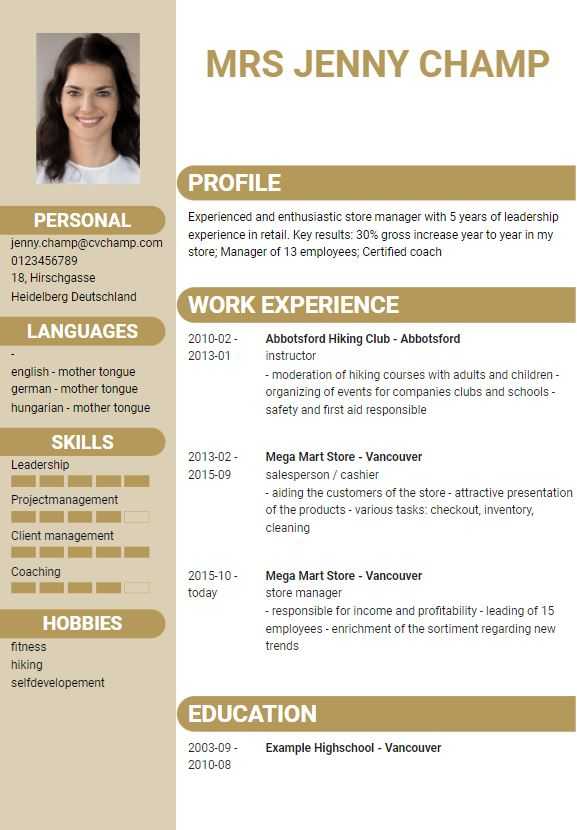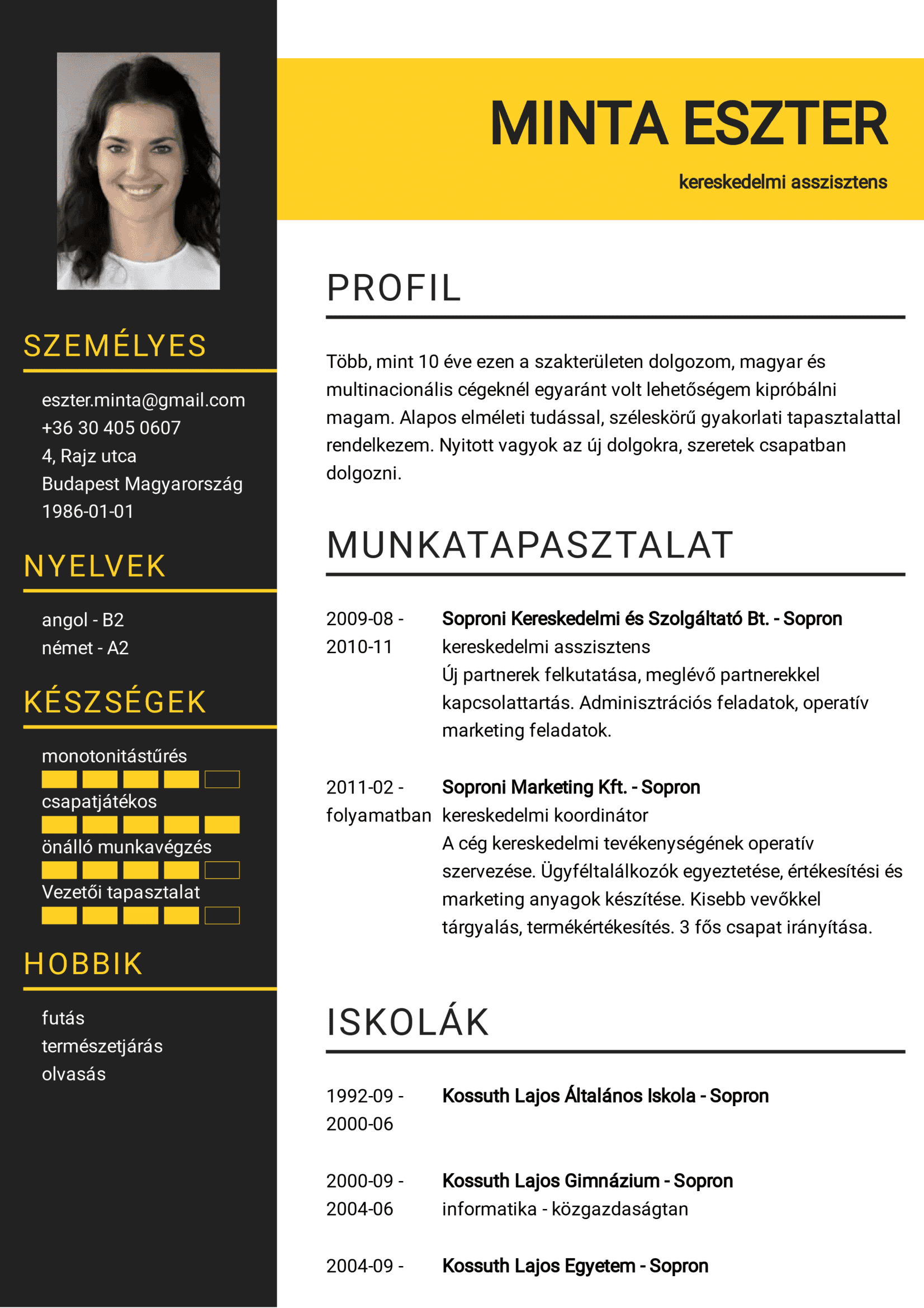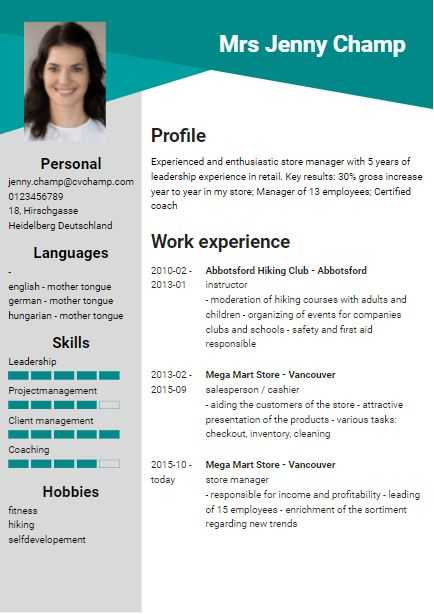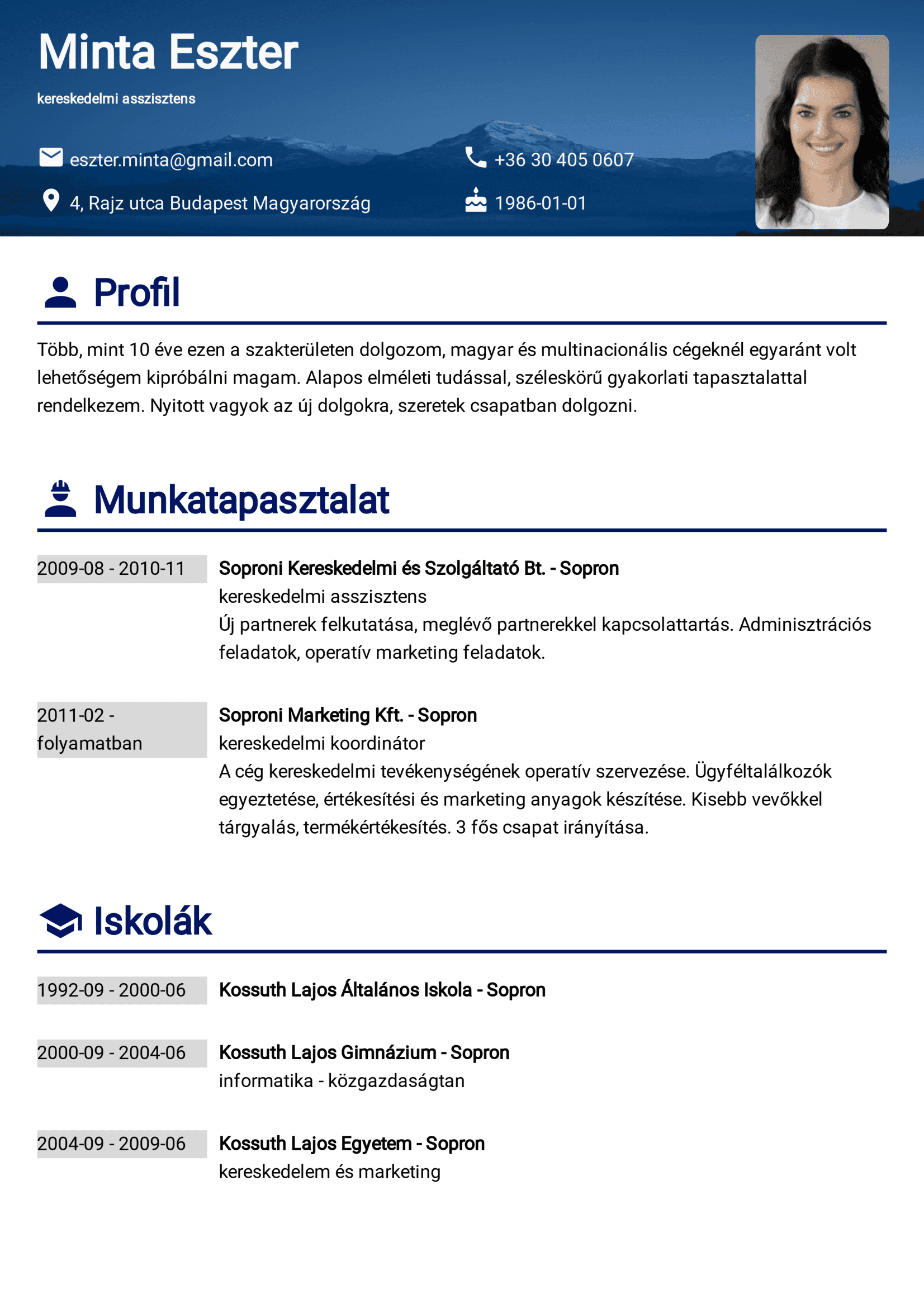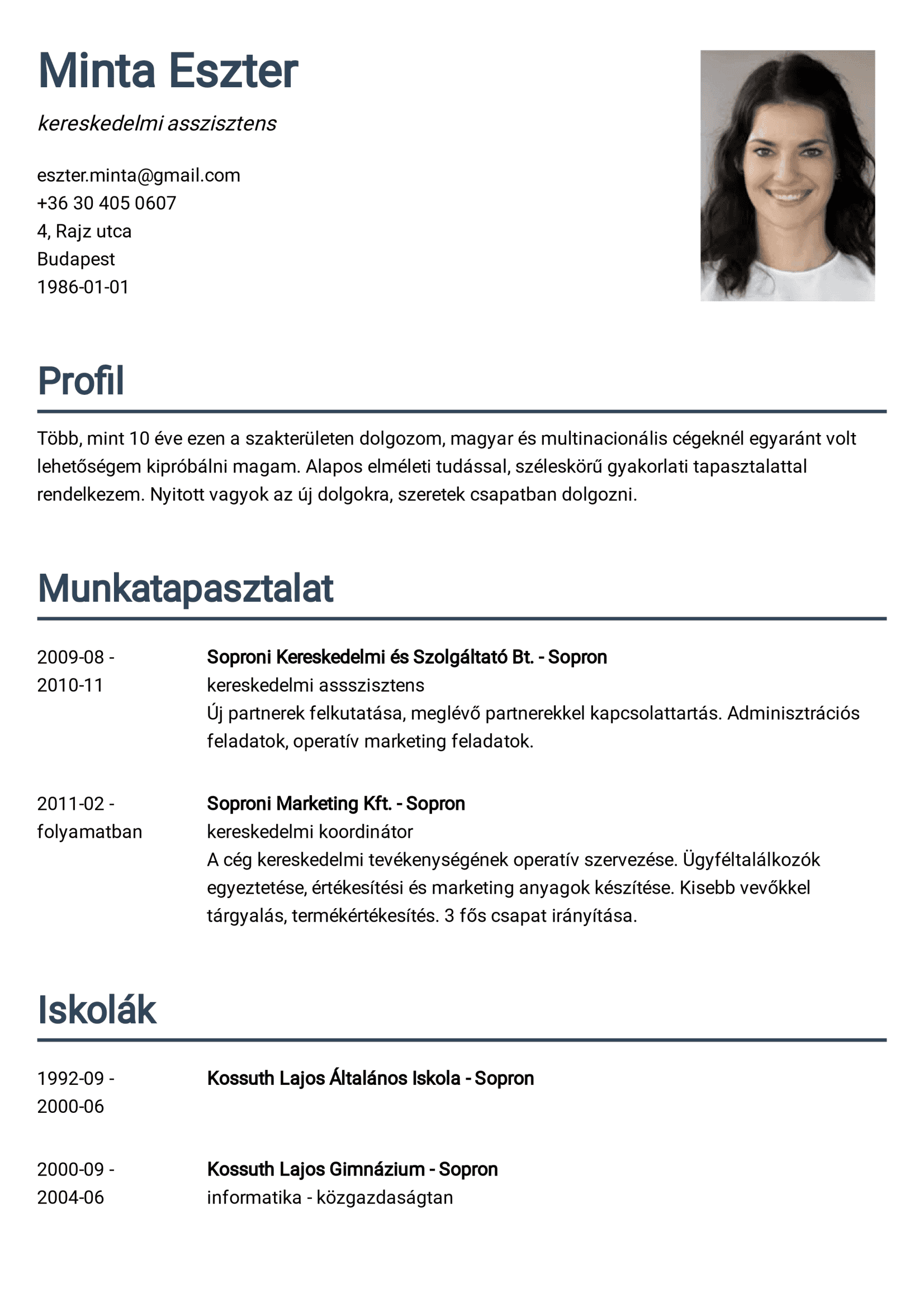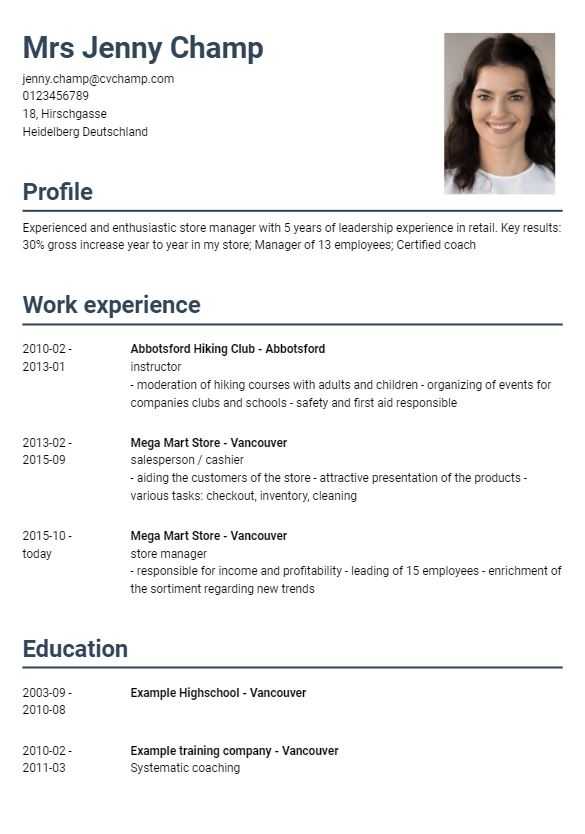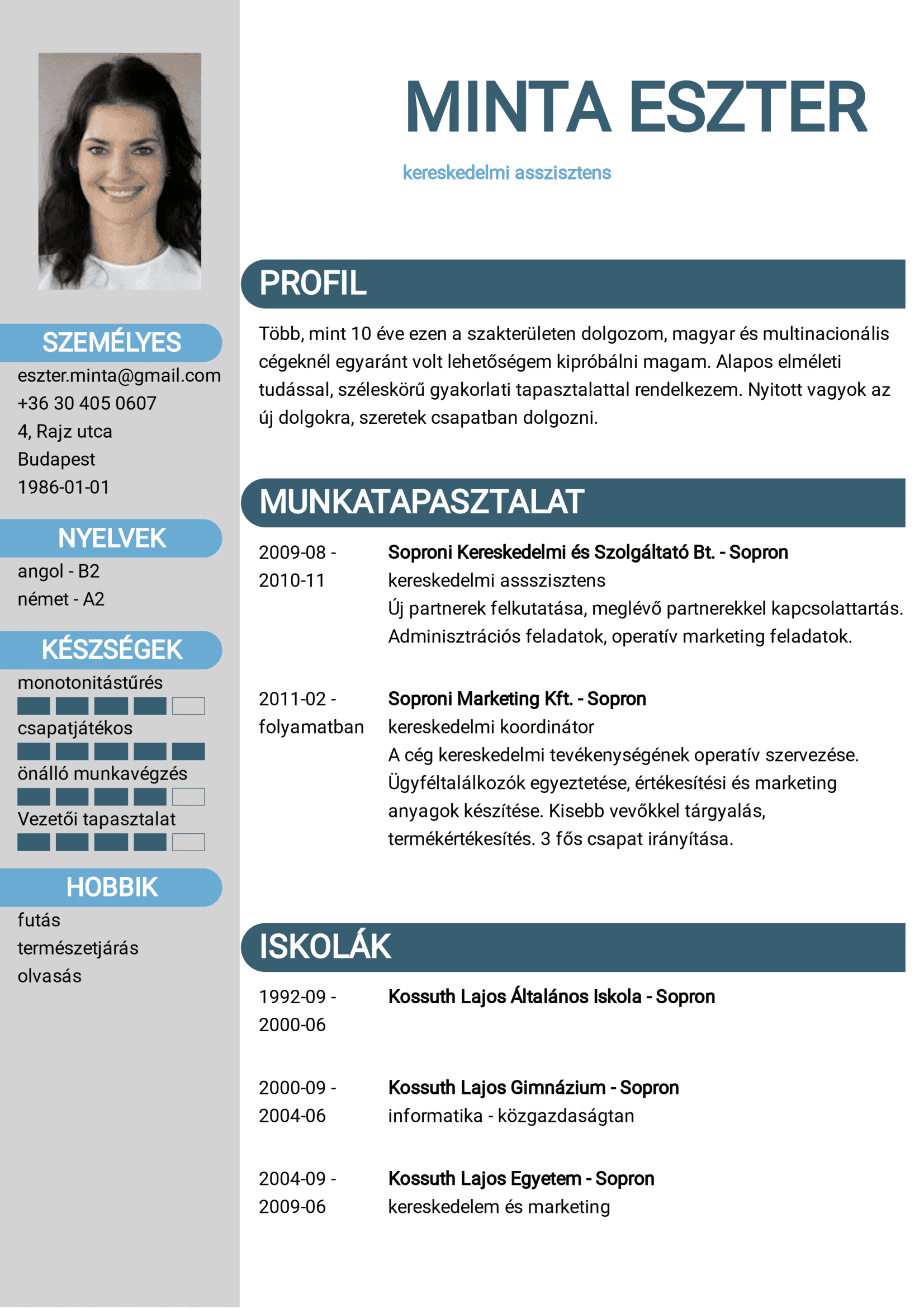

Resume for Career Starters - Guide, Tips, and Tricks
Wondering how to write your resume? Maybe you're just starting your job search and need to figure out how to best present your experiences and skills? Then you're in the right place! In this article, we show you how to write a well-designed, professional resume that sets you apart from other applicants.
Purpose of the Resume
Let's start at the beginning: Why do we need a resume? Simply put, to introduce yourself to your potential employer. It is the document with which you can effectively, briefly, and informatively present your skills, experiences, and goals in a way that sparks the employer's interest. It is the best tool you have in hand to gain the employer's trust and convince them that your application is worth their time. The resume is nothing less than your most important personal marketing tool, your first impression with the employer. A good resume is not just about content but also about how and in what style you convey the information. Applicants often underestimate the importance of a resume and write something hastily and thoughtlessly to apply for as many positions as possible as quickly as possible. This is a big mistake. It is much more effective to apply for fewer positions but to write a well-written, carefully composed resume for each.
Structure of a Resume for Career Starters
The resume should have a clear and logical structure so that it is easy for the potential employer to read and understand. It is not a good idea to deviate from the standard structure, especially for positions with many applicants. HR managers tend to spend little time reading a resume. If they don't find what they're looking for in your resume or find it difficult to find, they'll throw it away, which won't lead to the desired result :) Your resume should include personal data, contact details, profile, education, work experience (if any), skills, hobbies, and language skills.
Personal Details
The name is, of course, no surprise :) With the other personal information, you should consider which adds value to your resume. It is usually unnecessary to include your date of birth, marital status, gender, religion, or nationality; in most cases, it does not bring you any advantage.
With your contact details, there are two essential things to remember: Don't use a funny email address! Email addresses like "unicorn21(@)yahoo.com" can spoil your otherwise professional resume. The other is punctuality! Double-check your contact details to ensure they are correct because the HR manager won't be able to reach you if they want to arrange an interview.
Profile Summary
The Profile Summary is the introductory part of your resume that describes your key skills, experiences, and goals. Its primary purpose is to spark the employer's interest and convince them that your resume is worth reading. To achieve this, the profile should be short and to the point. Ideally, it should be 3-5 sentences long and include your key skills, biggest achievements, and the position you want to work in.
When writing your personal profile, consider what the employer is looking for. Employers often look for specific skills, experiences, and competencies, so your profile must focus on these requirements. Avoid overly general terms and use concrete examples and data to substantiate your skills and experiences.
Education
Information about your studies in your resume is essential for career starters. Make sure to include the name of the school, the dates, and the field of study in your resume. Also, include any activities you think might be relevant to the position you are applying for: internships, project work, research. Highlight the achievements you have made here and the skills you have used.
In addition to your achievements in higher education, presenting them in secondary education may be useful, especially if they highlight special skills or interests.
In addition to subjects, it is also worth mentioning the topic of your thesis or dissertation, especially if it is relevant to the position. For example, if you are applying for a position in marketing and your thesis dealt with digital marketing, it is advisable to mention this.
Work Experience for Career Starters
A resume without work experience? This is the part most often missing in the resume of a career starter, but don't worry! If you have worked outside of school, you can list it as work experience, but make sure it adds value to the position you are applying for. A measurable achievement or an important quality you had to have to get the position could be worth a lot. On the other hand, if you have done a job irrelevant to the position you are applying for, leave it out and add more details to the rest of your resume.
Presentation of Skills
The competencies and skills you present in your resume are often the most important factors employers consider. As a career starter without valuable professional experience in a particular area, your soft skills, i.e., your personality traits (such as logical thinking, strategic thinking, or problem-solving skills) play a vital role in the selection process.
Interests, Hobbies
Mentioning your interests and hobbies in your resume can help the employer get to know you better. In addition, some hobbies and interests can show your skills and values. For example, if you enjoy playing sports in a team, it can indicate that you are a good team player and can work well with others. If you volunteer, in addition to your empathy, it can show that you are committed to the community and willing to sacrifice your time and resources to help others. However, it is important that you only mention hobbies and interests that are truly relevant to your work or that underscore your personality and values. Also, avoid overly personal or controversial topics such as politics or religion.
Optimal Length of the Resume for a Career Starter
Except in exceptional cases, a resume for newcomers should fit on one page. It can feel cramped if you want to pack too much information. Still, it's worth writing less and creating a more airy resume focusing on the essentials and only containing the most important information.
Remember that HR managers spend very little time with a resume. Therefore, making a positive first impression is more important than writing as many details as possible.
Language and Style of the Resume
The language and style of the resume also play an important role in how effective the document is. Avoid sentences and paragraphs that are too long and lose the employer's attention. Use bullet lists to highlight key points and a clear structure so the employer can easily check the information.
It is important to use a professional tone, but you should also be able to show who you are. This helps the employer understand you better and imagine how you would fit into the team.
Keywords in the Resume
Employers often use computer systems to pre-check resumes before sending them to human employees. These systems often search for keywords that relate to the job posting.
Therefore, you must use keywords in your resume that reflect the skills and qualifications in the job advertisement. For example, if the job advertisement says you need "project management" knowledge, you should include this phrase in your resume if you have it 😊.
Personalizing the Resume for the Position
Personalizing your resume for jobs means creating a separate resume for each application. This can be time-consuming but can pay off in the long run because it increases your chances of getting an interview. Each version of your resume should highlight the skills and experiences most important for the advertised position you are applying for. You can do this well by carefully reading the job advertisement, understanding which skills and qualities the employer is looking for, and writing your resume to emphasize these qualities.
How to Deal with a Lack of Experience in Your Resume?
The lack of experience in a resume is a common challenge for applicants, especially when writing a resume for a newcomer. But it's not impossible to write a good resume without it. You just have to cook with what you have 😊 Try to present as many of your courses as possible instead of work experience to show your proactivity, willingness to learn, or commitment. Don't skimp on listing your skills, but feel free to mention several so the HR manager can better decide how you fit into the team.
The Most Common Mistakes in Resumes
Length
One of the most common mistakes job seekers make is writing a resume that needs to be shorter. Most employers only look at a resume for a few minutes. Therefore, keeping it short and concise is important, and it should only include the most important information. This way, you show that you can focus on the essentials.
Spelling and grammar errors indicate that you are not thorough and did not take the effort to read your resume. Always use a spell checker and, if possible, ask someone to correct your resume before sending it.
Not Relevant
Your resume should always focus on the position you are applying for. Irrelevant information only distracts from your most important skills and experiences. For example, suppose you are applying for a position in marketing. In that case, mentioning your previous work as a warehouse worker is only necessary if you can link it to your marketing skills.
Help for Your Resume
If you feel overwhelmed by all the information or completely lost, you can help yourself. Here are some ideas on how you can more easily write your resume:
Spell Checker: Open any text editor. You will find spell-checking functions everywhere, except for the simplest programs, and you should definitely use them. There are also online spell-checking sites that can help you.
Resume Template: With a little search, you can find sites to download ready-made resume templates. You have to upload them with your details and export them in PDF format, and then you can upload them with your application. They have the advantage that you no longer have to worry about formatting.
Resume Generator: The Resume Generator can help you with all the details of your resume. You can use forms to enter your data so you remember everything important. You will also find ideas, tips, and a sample resume for career starters to help you compile your document. You can choose from several templates here to change your mind and try a different look, even if you are at the end of the process. You can also download the finished document or have it sent to you by email.
I hope these tips help you with your resume! I wish you good luck in your job search!



